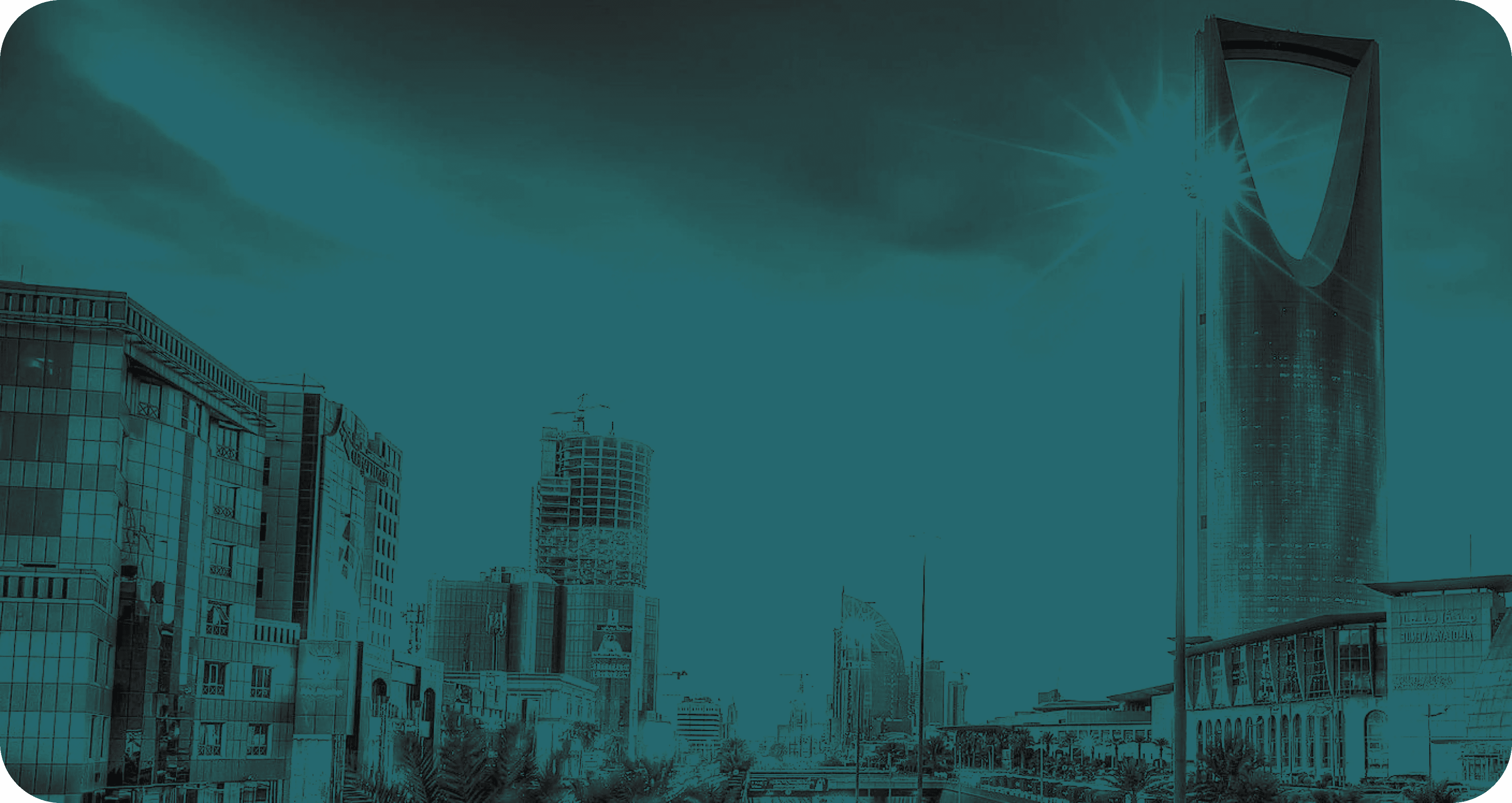
A Step-By-Step Guide To Budgeting For Business Expansion into Saudi Arabia
Understanding the cost breakdown and structure is crucial for successful Saudi market expansion. This guide provides a detailed cost analysis to help high-growth companies create their expansion budget and launch full-scale operations in Saudi Arabia.
Understanding the cost breakdown and structure serves as the building block for successful Saudi market expansion. The market's rapid growth and changing dynamics demonstrate the need for accurate information regarding expansion costs to help high-growth companies make financially sound, informed decisions.
This guide provides detailed cost analysis that helps companies create their expansion budget in pursuit of the launch of full-scale operations in the high-growth market of Saudi Arabia.
Understanding Four Stages of Saudi Market Expansion:
The initial stage of the Saudi market expansion primarily involves getting all the necessary documents attested, including a certificate of incorporation, the memorandum of association (MoA), and articles of association (AoA), as well as an audited financial statement.
To complete the setup process, businesses must register with more than 10 ministries and governmental entities as part of the 20-step setup roadmap. Following that, renting or buying a new premise for the company and obtaining a national address are considered mandatory.
In the soft landing stage, companies must issue the general manager residence and complete registration on key government portals, including Muqeem, Absher, Qiwa, and Mudad. Having a bank account up and running is considered crucial at this point.
Businesses are then required to hire staff in compliance with the Saudi quota, issue visas for non-Saudi staff, and complete their legal due diligence as part of the post-setup stage. Utilizing third-party services might be essential to assist companies in accounting and payroll management.
A Breakdown of Expansion-Related Costs for Each Step of the Expansion Process
Below is a list of common expenses covering the business setup for the first year, totaling SR550,000 or $172,000.
The renewal process for a license covering the following year starts in the 11th month of the year, meaning that it is vital to ascertain this in the budget for the first year. This will allow a business to complete the renewals on time, avoid any possible disruptions, and maintain full compliance.
- Incorporation
This refers to the complete setup process for a company through a service provider, with the overall cost estimated at SR150,000 or $40,000.
- Hiring
This refers to the total costs that come with hiring a general manager (GM) and Saudi nationals, which must be finalized within six or 12 months following the incorporation.
In Saudi Arabia, the monthly salary range for a GM is between SR20,000 and SR25,000; the average monthly salary for Saudi nationals can fall between SR5,000 and SR8,000. In certain cases, the salary for a Saudi national may be as high as SR12,000.
Partnering with a business expansion platform like AstroLabs can enable seamless local talent acquisition for a better soft landing and help companies meet their Saudization quotas.
The average cost of hiring a GM and one Saudi national is: SR375,000 or $100,000
- Workspaces
This refers to workspaces of all types that accommodate the business and staff. On average, the most economical shared working spaces can be offered at a total cost of SR20,000 or $5000.
- Compliance and Renewal
This refers to the governmental fees for renewing licenses in time, as well as keeping the company’s accounts on all key government portals updated. The total cost can amount to SR75,000 or $20,000
- Third-party Services
That refers to the total costs of third-party services provided by the company for its payroll management, accounting, audit, and PRO services, collectively totaling SR25,000 or $6,900.
- Common Taxes Applied to Saudi Entities
The Kingdom's tax regulations are varied and constantly changing to align with the dynamic and fast-paced nature of the business landscape. Common tax expenses that a foreign business incurs in Saudi include:
1. Value-added tax (VAT), which currently stands at 15%
2. Corporate Income also referred to as “capital gains”, is levied on net adjusted profit, or the share of companies owned by non-Saudis, at a rate of 20%.
3. Withholding Taxes (WHT), which range from 5% to 20%, depending on the nature of the business activity.
Saudi Arabia: The Unmissable Market Expansion Opportunity
Expanding to Saudi Arabia is, by all means, considered an unmissable opportunity that promises long-term benefits and growth avenues. Looking at GDP, it has grown from $990 billion in 2016 to $1.7 trillion and is projected to be around $2.9 trillion by 2030, thanks to the transformative initiatives brought on by Vision 2030.
The ever-growing market opportunity paired with a massive consumer base of more than 36 million people and $1,000 GDP per capita shapes the business landscape in the Kingdom and places it on a sustained upward trajectory.
One standout advantage about the Kingdom is that the market offers evergreen opportunities for private sector companies to work on grand-scale projects that strengthen its construction sector, predicted to be the largest by 2028. For instance, last year, almost seven years after the rollout of Vision 2030, the country won the bid to host Expo 2030 and the FIFA World Cup 2034.
The giga projects are another factor driving innovation and positive changes, with each one of them offering massive growth avenues for companies across various vertices and industries as well as generating a multitude of job opportunities. All of this is influenced by constantly evolving regulatory and social reforms that collectively position the Kingdom as the favorite place to be for business expansion.
How Can a Business Estimate a Budget for Expansion?
When planning an entry into Saudi Arabia, businesses are faced with common business expansion costs, regardless of their legal and financial structure and the industry they operate in. However, there are variable costs that go into the expansion expenses, which can be difficult to account for in the company's cost considerations.
To circumvent this challenge, AstroLabs has just released a new flagship product called the Cost Calculator, designed to help foreign companies expedite their market entry to Saudi Arabia while maintaining sound financial footing.
It caters to businesses, finance managers, business developers, lawyers or entrepreneurs and more.
How Does the Cost Calculator Work?
Through the cost calculator, businesses can get a rough estimate of the costs associated with setting up shop in the kingdom.
Users can simply be required to provide some basic information about Saudi expansion, and then the tool will generate an analysis.
After receiving the user's responses, AstroLabs will prepare a more detailed, premium-level cost analysis within 48 hours. Once the user makes the required fees, the company can schedule a consultation call with one of AstroLabs’ experts to ensure the analysis is 100% accurate.
Following the call, a comprehensive analysis will be delivered to the user, who can then receive an additional 30-minute session with an AstroLabs consultant to help them delve deeper into the details of the analysis. Once the user has their budget adjusted and is ready to proceed with their Saudi market expansion, AstroLabs will offer them a 10% discount on its services.
The AstroLabs on-ground team is equipped with the experience and knowledge needed to effectively handle every aspect of the expansion process, including licensing, recruitment, securing offices, and tax consultancy, among others.
With the right knowledge and assistance, companies can keep pace with rapid market changes, determine realistic projections of their expansion costs, and seize value-enhancing opportunities for growth.
To streamline your expansion to Saudi Arabia, contact AstroLabs here.




